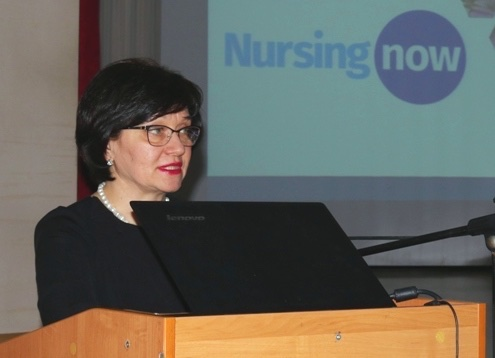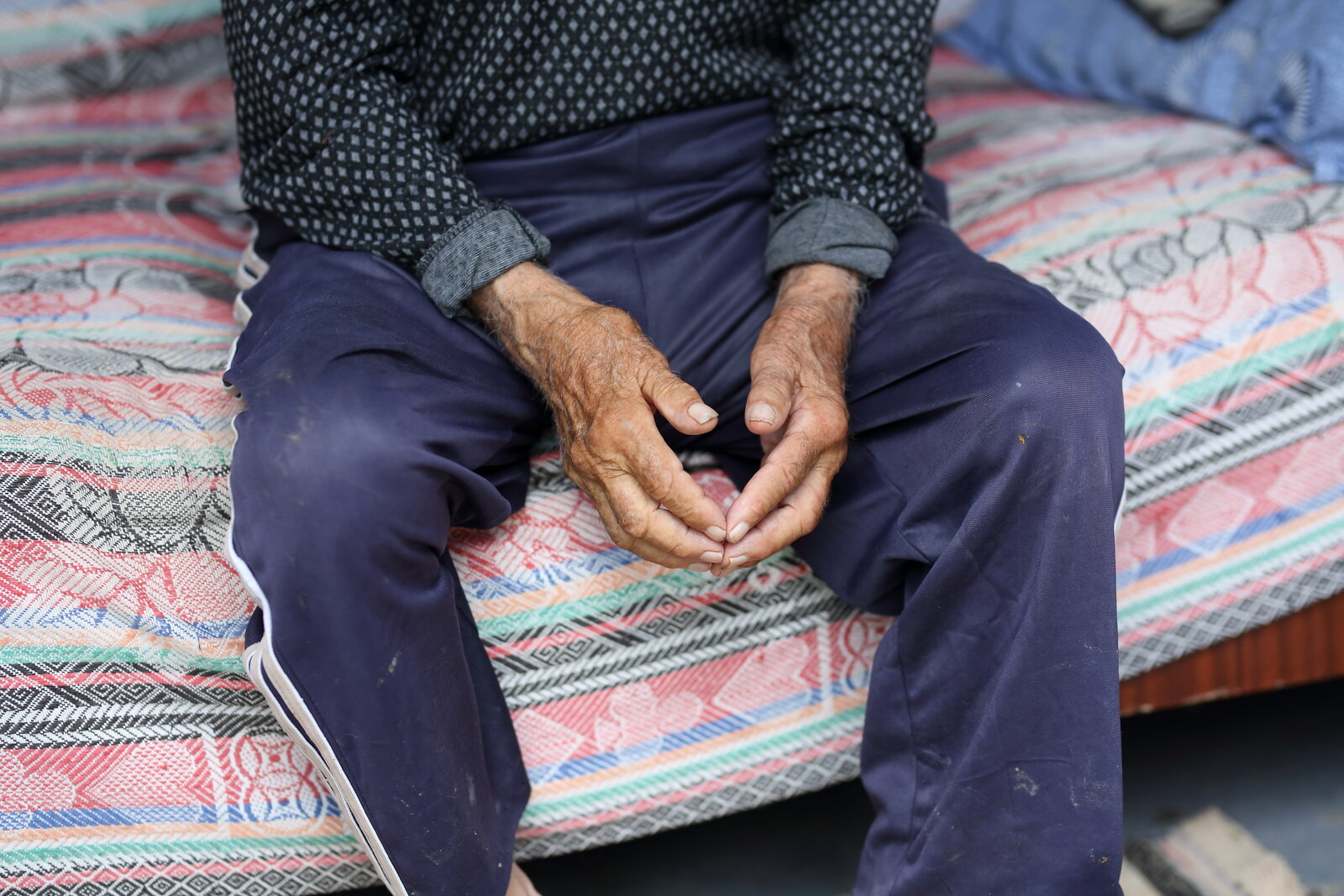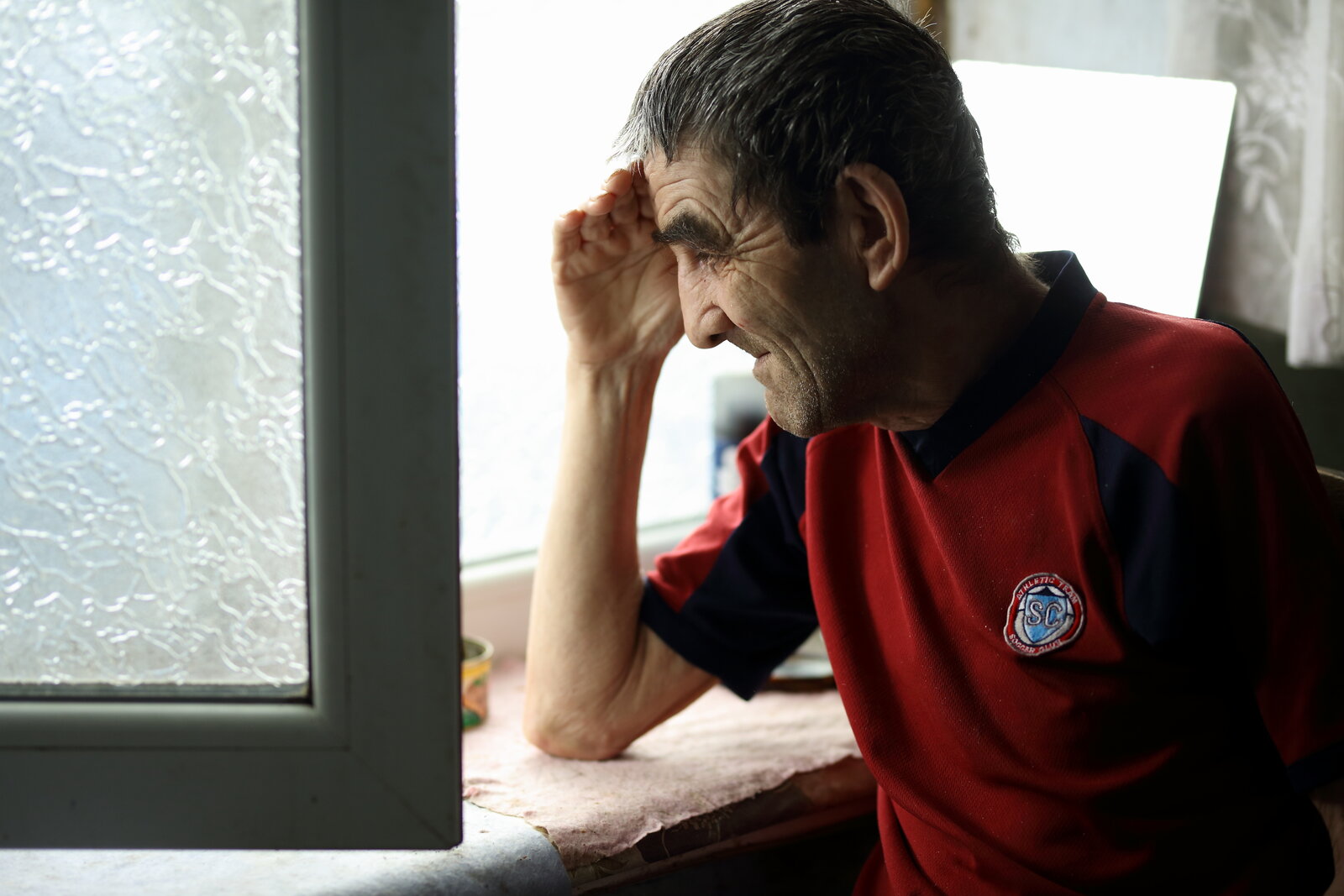In Moldova, the number of people requiring long-term care at home is constantly growing. This has increased the need to train specialists who can provide medical and social care at home. Recently, a qualification standard for the profession of “home caregiver” has been approved. Caritas Czech Republic cooperated closely with local authorities and external partners to introduce the new profession of caregiver.
In March 2022, grace to this joint effort, the Ministry of Education and Research of the Republic of Moldova approved the qualification standard for the new profession of "home caregiver”. This will help unburden the state system of home care services provided to elderly or vulnerable people.The new qualification standard will allow accredited institutions to train specialists in this field and is going to be included in initial and continuing vocational programs.
Mariana Negrean, national trainer and member of the Nursing Committee, explains more about the changes the new profession will bring.
- What does the newly approved qualification standard "home caregiver" mean for social and health care in Moldova?
First of all, the approval of Home Caregiver qualification standard is a joint success of all partners who provide health and social care services to people who are bedridden and dependent on the care of others. Before the approval, there was no such position as a home caregiver in Moldova. At the same time, there are not enough nurses to deal with the high demand in home care services. That is why a working group was created specifically for this purpose. Thanks to the group, the position of home caregiver became an official occupation in Moldova. Now it’s part of the vocational category: Care of the Elderly and Disabled Adults.
- What are the next steps?
Now that there are approved documents for the qualification of home caregiver, this means that the educational service providers will be able to develop vocational training programs to train and raise specialists involved in long-term care at home.
The Centre of Excellence in Medicine and Family "Raisa Pacalo" has recently opened the Centre for Validation of Non-Formal and Informal Education, which will validate the professional competences required for the profession of Home Caregiver.
This joint effort will ensure a better quality of medical and social services provided to the population of the Republic of Moldova.
- Who can become a Home Caregiver?
Anyone who completes the Home Caregiver Training Program. The program includes 3,600 hours of full-time study. It should also be noted that the approved qualification standard offers the possibility to continue the professional training with a further 600-hour programme.
The programme is open to secondary school, middle school and vocational school graduates, adults and unemployed people regardless of age. Enrolment in the programme is based on the documents which certify the graduation of secondary school/middle school studies or on any other equivalent document recognizing the completion of a compulsory level of study.
Graduates of the Home Caregiver programme will have the possibility to be employed directly after graduation of the program or will be able to continue their studies by following the post-secondary full-time medical education.
- What employment opportunities are available to people who qualify as a home caregiver?
Graduates of the Home Caregiver programme will be able to work in:
- non-governmental organizations providing home care services;
- state residential organizations or private organizations providing social-medical care services to the population - such as nursing homes;
- public health care institutions (such as district, municipal, state hospitals) or private health care institutions (multi-purpose private hospitals) providing health care services, etc.
- What are the duties and responsibilities of a home caregiver?
The home caregiver will be responsible for the provision of home care services to adults with limited autonomy, in a preventive, curative, rehabilitative or palliative way.
The home caregiver will supervise the health of the person they care for, they will apply care measures, assist, hydrate and feed the patient according to medical prescriptions, help them to carry out their own hygiene and clean their living space; they will ensure the socialization of the cared person and, if necessary, will ensure their mobilization and transportation. At the same time, the home caregiver will participate in ensuring a suitable living environment and climate for the cared person.
- What skills should a home caregiver have?
Based on their duties, the home caregiver must be an action-oriented person, conscientious, serious, responsible, thorough in the performance of tasks, able to perform the same types of tasks over a long period of time, with a sense of kindness and a good emotional balance.
- Who can benefit from the medical-social services provided by the home caregiver?
The home caregiver will be able to provide medico-social care services at home or in medical or residential institutions organised by social and medical service providers regardless of the type of ownership and legal form of organisation.
In this context, the home care support will be provided by home caregiver to people who are at risk and in urgent need of personal care; people who have a chronic illness and need long-term medico-social care; people who are alone and at the same time have a chronic physical illness or are developing a mental illness.
- Which educational institutions will be entitled to certify the home caregiver specialists?
The implementation of the qualification standard "Home Caregiver" will be carried out both by the Centre of Excellence in Medicine and Family "Raisa Pacalo", as a professional medical education institution with the right to provide educational services or validation of professional competences, and by the providers of continuing vocational training educational services, such as NGO Casmed after the elaboration of the training programme.
The providers of initial educational services and continuing medical education will periodically inquire the beneficiaries of educational services and the providers of home care services on the quality of the Home Caregiver Qualification Standard and will come up with proposals for optimisation and improvement in order to ensure in this way a high quality of these services for the citizens of the Republic of Moldova.
The interview was conducted in the framework of the project "Ensuring the quality and accessibility of medical-social homecare services", funded by the Czech Development Agency.
Did you find the interview interesting? Read more:
- People study logistics for years, we had a day and a half to send our first humanitarian truck, says Šárka Prošková
- Iryna left Kiev with her family. But they are staying in the country and want to help
- Ukrainian refugee: No one wanted to believe that this pointless war would come. Then we heard the bombs








